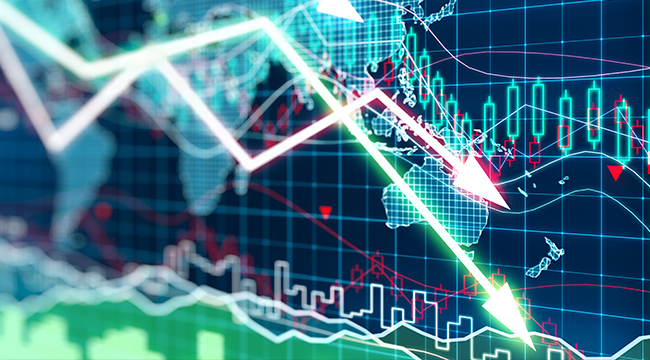
On Monday, the Dow lost everything it gained so far in 2018, losing 1500 points overall and experiencing its worst single-day decline ever at 1100 points, or just over 4.6%, by the closing bell. Tuesday doesn’t promise to be much better for investors, as the fallout spreads from the U.S. to Asia to Europe and possibly back again. So why did this happen? Is it a crash?
- Wall Street got three bits of uncertain news last week that made it uneasy, starting with who runs the Federal Reserve: Jerome Powell yesterday took the role of Federal Reserve chairman, replacing Janet Yellen. Powell, despite serving on the Reserve’s board of governors since 2011, is largely an unknown quantity in Wall Street, and since the Reserve has been keeping it cheap to lend money, there’s some anxiety that Powell may tighten the purse strings, especially after the Federal Reserve noted an uptick in inflation.
- The second was rising wages: The government reported that wages rose the most since 2009, although those rises were modest. Since labor is the highest cost for any industry, Wall Street was uncertain just what the outlook would be across the board.
- And finally bond yields began improving: Interest rates on federal bonds have been rising, and investors are concerned that if bonds offer a better return than the stock market, funds and individuals will ditch stocks for bonds. It doesn’t help that the federal government is likely to need to issue more bonds in the future, and will likely promise a better rate of return.
- Those jitters triggered a sell-off, although it wasn’t a crash: The stock market has been on a run since 2009, really, and all this plunge (although admittedly high in numbers) did was bring the market back to the level it was at in December. Many experts think the market was simply overvalued, and that this was a correction, not a crash.
What happens next? There are multiple problems lurking in 2018 to keep an eye on: Economists have pointed out the U.S. has several structural issues that need to be addressed, but there are also a handful of problems that could shake markets all on their own.
- Some economists, including the Fed’s new chair, are worried about a second housing bubble: The government is on the hook for billions in home loans and all the problems that created it are in place, with only broke Millennials keeping 2008 from happening all over again.
- The death of retail is about to get much, much nastier: 2017 was marked with retail outlets struggling, and 2018 will see far more retail debt come due, potentially triggering even more store closings. Major department store chain Bon-Ton has already filed for Chapter 11 bankruptcy and may not be able to avoid a liquidation. It’s unlikely to be the only one, especially as many retail chains were the target of leveraged buyouts, meaning enormous debt financed with cheap money was put on their books. A collapse in physical retail would cost thousands of jobs, potentially bankrupt real estate investment trusts, and wreck tax revenues.
- The automotive industry is beginning to face a crisis of its own: Many of the same problems that created the housing bubble are repeating in the car market, as subprime loans seeing rising defaults and a flood of formerly leased cars hit the market.
- The GOP might be forced to push bond yields even further up: If all this weren’t enough, the GOP tax bill has already forced the Congressional Budget Office to warn Congress it needs to vote on the debt ceiling as early as March. Remember those bond yields? If the U.S. government needs to starting borrowing more money, they’re going to inch up. Even just reaching parity with stock market returns will see many investors making a switch.
- And all of this assumes 2018 won’t see any sort of crisis: Trump keeps trying to start trade wars and actual wars, neither of which are great for the stock market.
In short, this may well be a temporary correction. But make no mistake; a placid 2018 for the stock market is incredibly unlikely.
